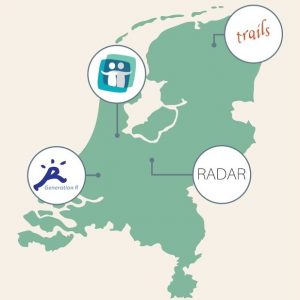2018 – 2020
Consortium on Individual Development, The Netherlands
The Consortium on Individual Development (CID) involves researchers from UMC Groningen, Utrecht University, UMC Utrecht, University of Amsterdam, Leiden University, Rotterdam Erasmus Medical Center, and VU Amsterdam. The consortium aims to understand and predict how the interplay of child characteristics and environmental factors results in individual differences in the development of social competence and behavioral control.
In these two multi-cohort studies, I collaborated with researchers from several universities to investigate if maternal and paternal age at the birth of their first child had an effect on their child’s mental health and neurodevelopment later on. I analyzed the data of the Tracking Adolescents’ Individual Lives (TRAILS) cohort, provided feedback on the manuscripts, and contributed to the work sessions and group meetings.
Lead Investigators: Mariëlle Zondervan-Zwijnenburg & Sabine Veldkam
Parental age and offspring mental health: A multi-cohort, population-based investigation
To examine the contributions of maternal and paternal age on offspring externalizing and internalizing problems, this study analyzed problem behaviors at age 10–12 years from four Dutch population‐based cohorts (N= 32,892) by a multiple informant design. Bayesian evidence synthesis was used to combine results across cohorts with 50% of the data analyzed for discovery and 50% for confirmation. There was evidence of a robust negative linear relation between parental age and externalizing problems as reported by parents. In teacher‐reports, this relation was largely explained by parental socio‐economic status. Parental age had limited to no association with internalizing problems. Thus, in this large population‐based study, either a beneficial or no effect of advanced parenthood on child problem behavior was observed.
Parental age in relation to offspring's neurodevelopment
Objective: Advanced parenthood increases the risk of severe neurodevelopmental disorders like autism, Down syndrome and schizophrenia. Does advanced parenthood also negatively impact offspring’s general neurodevelopment?
Method: We analyzed child-, father-, mother- and teacher-rated attention-problems (N = 38,024), and standardized measures of intelligence (N = 10,273) and educational achievement (N = 17,522) of children from four Dutch population-based cohorts. The mean age over cohorts varied from 9.73–13.03. Most participants were of Dutch origin, ranging from 58.7%-96.7% over cohorts. We analyzed 50% of the data to generate hypotheses and the other 50% to evaluate support for these hypotheses. We aggregated the results over cohorts with Bayesian research synthesis.
Results: We mostly found negative linear relations between parental age and attention-problems, meaning that offspring of younger parents tended to have more attention problems. Maternal age was positively and linearly related to offspring’s IQ and educational achievement. Paternal age showed an attenuating positive relation with educational achievement and an inverted U-shape relation with IQ, with offspring of younger and older fathers at a disadvantage. Only the associations with maternal age remained after including SES. The inclusion of child gender in the model did not affect the relation between parental age and the study outcomes.
Conclusions: Effects were small but significant, with better outcomes for children born to older parents. Older parents tended to be of higher SES. Indeed, the positive relation between parental age and offspring neurodevelopmental outcomes was partly confounded by SES.
